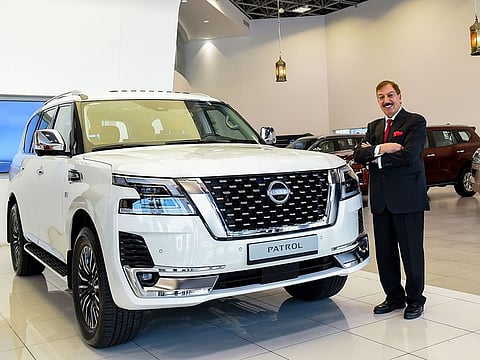In UAE, new car buyers are getting extended warranties and service contracts to keep costs down
Auto insurance too has been upgraded to comprehensive as UAE car demand zooms back

Dubai: Car buyers in the UAE need only bother about the sticker price these days – almost all other costs are increasingly being absorbed by the dealerships.
Service contracts have been extended well beyond the earlier standard of one-year; warranty now stretches to five years instead of three in most cases; and the first-year free insurance has been upgraded to comprehensive instead of third-party.
“Earlier too there were offer bundles along with new car sales – but never to this extent,” said Michel Ayat, CEO of AWR Automotive, which is the Nissan, Infiniti and Renault dealership. “The price of new cars have increased because of the steep rise in shipping them into the country. What we have done is we have shared the cost increases with the manufacturer so that the end-user gets a lot less.
“And we have the expanded offers for him to keep his cost of owning a car low.”
Other dealers are also on the same tack, seeing this as the best way to manage demand and keep the cost of ownership for buyers within range.
Typically, dealerships limit the extend to freebies when auto sales are on a roll – and right now demand is running at 10-15 per cent plus compared with a year ago. Industry sources are saying that the UAE new car sales could have been hitting 20 per cent or higher if only there were more cars available to be sold. Between booking a car to delivery, there is now a two- to three-month lag because of global production disruptions.
Shipping costs are down – slightly
Thankfully, container costs are starting to slide, offering some relief to dealers and manufacturers. “It’s not much but we are seeing shipping charges drop from $10,360 a container in September 2021 to around $8,200,” said Ayat. “Now, many might think that’s quite an improvement – but not when you consider that it was $1,720 in January 2019.”
This is the cost inflation that the auto industry is struggling with – and trying their best not to pass on to the consumer. When they are forced to, dealers are compensating through super-extended warranties and service contracts.
This year, the first three months could have seen around 60,000 new cars leaving showrooms, including sustained demand from fleets. (Second-hand car demand is running at its own peak, with sticker prices increasing across the board.)
“The only reason that new car sales did not reach higher is because of the global shortage in chips,” said Ayat. “The UAE auto market is in fully recovery to pre-pandemic numbers. More cars available in the second-half will sustain this demand.” (Global shortages in computer chips have been constant bane for all tech industries for months now, hitting production from smartphones to supercars.)
More first-timers
According to Ayat – and vouched by other dealer sources – is the unprecedented rise in first-time car owners, especially with more newcomers to the country taking up permanent residency. “I heard from the Lebanon Business Council of 70,000 new Lebanese expats – and that’s just one nationality,” said Ayat.
“Car demand is just not coming from someone turning 21 years and wanting to buy a car. This demand is broad-based – and a sign that the UAE’s reform packages for the economy are paying off. Even better, SUVs are 51 per cent of the overall auto sales in the country – and that too is happening for the first time.”
All that’s needed are more cars coming into ports and dealer facilities. Demand can take care of the rest, with a little help from extended warranties and comprehensive insurance cover.
Dubai as a post-pandemic business hub was a message that resonated with the world and is shown in the highest quarterly number of new car ownersMichel Ayat of AWR Automotive
Sign up for the Daily Briefing
Get the latest news and updates straight to your inbox



